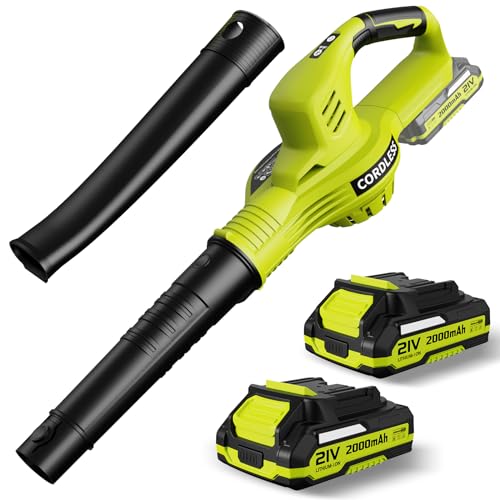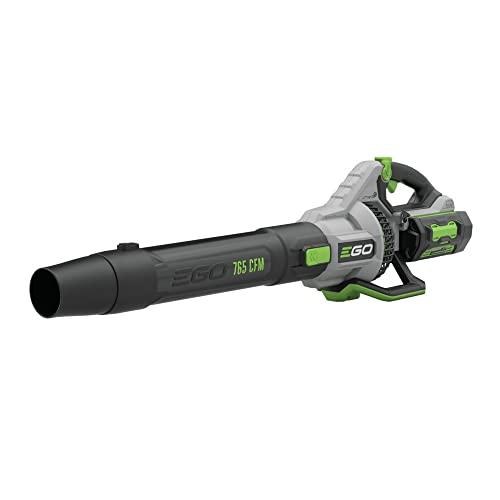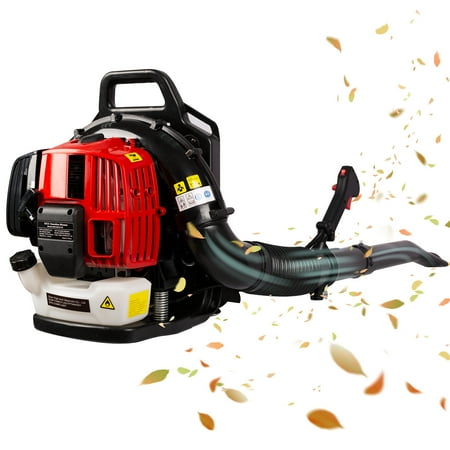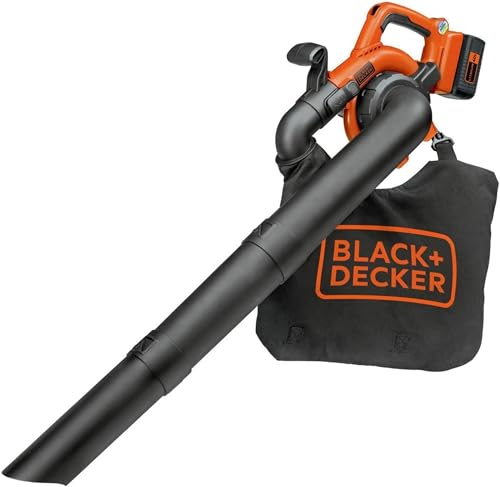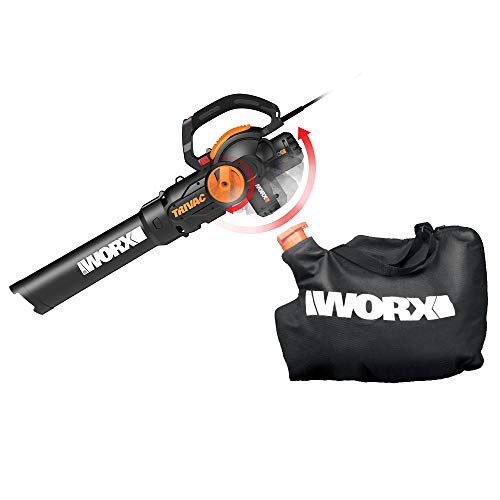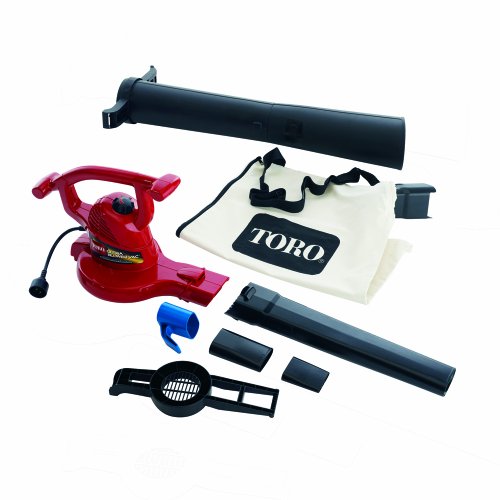Leaf blowers vs leaf vacuums – which is best for your yard, and should you bother with either?
They're controversial pices of equipment, but which is best - a leaf blower or a leaf vacuum?

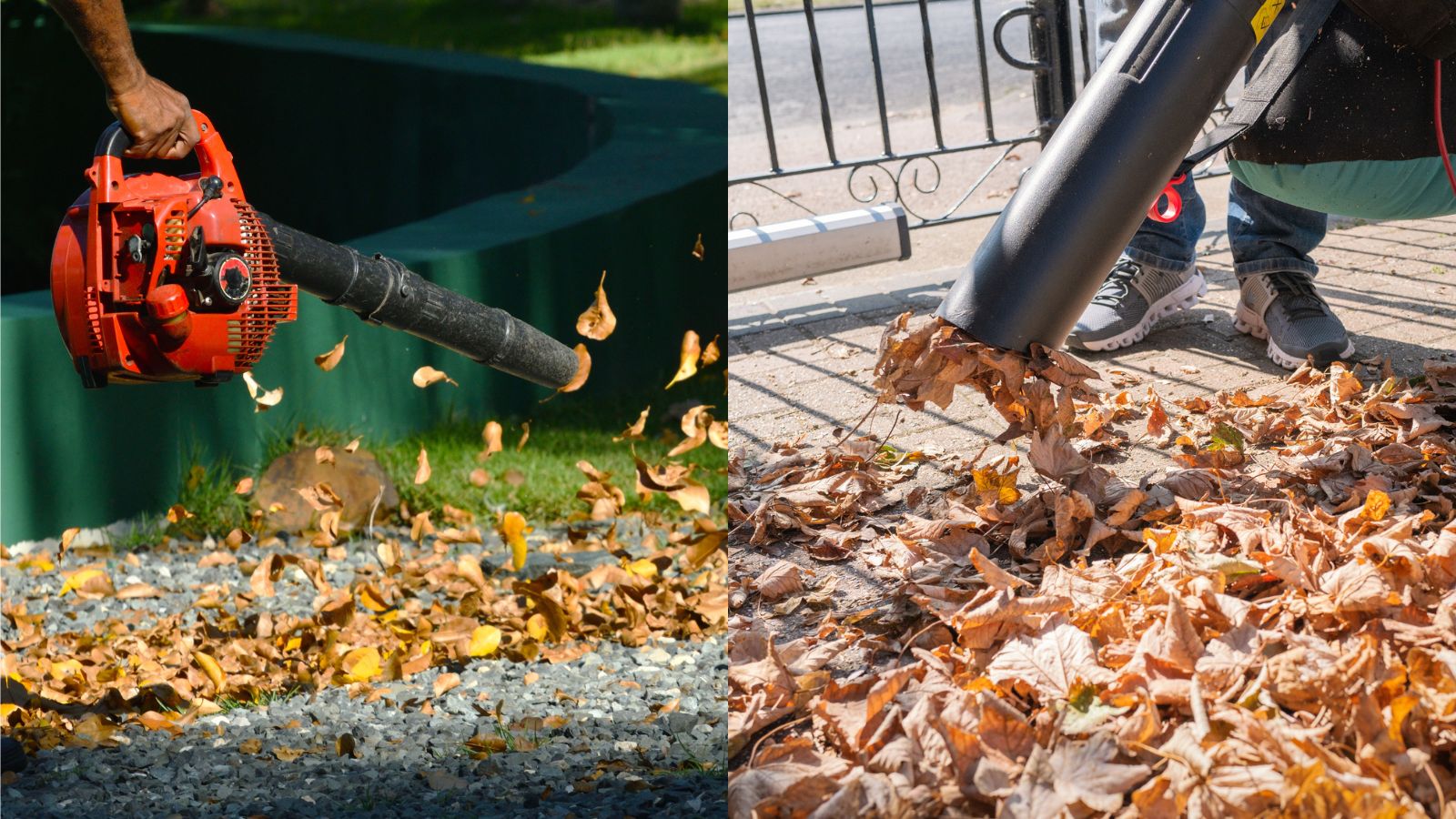
The year has flown by, and somehow we're already most of the way through August. If you're anything like me, you'll be preparing your fall gardening checklist to ensure you're ready for the changing season.
Top of most people's lists will be buying a new leaf blower to take care off all the fallen leaves come September and October. Savvy shoppers will know that you can also buy leaf vacuums to suck up all the leaf litter - but which is actually best?
That's where I come in. I've spent years testing dozens of the best leaf blowers and leaf vacuums, so I know all of the benefits and shortcomings of both types.
What's the difference?
The difference between leaf blowers and leaf vacuums is pretty simple. A leaf blower, unsurprisingly, blows leaves around the yard, so you can tidy them into piles. A leaf vacuum, on the other hand, vacuums them into a bag.
Leaf blowers tend to only blow leaves; leaf vacuums, on the other hand, can work as both leaf blowers and leaf vacuums.
What are the benefits of a leaf blower?

Leaf blowers are pretty simple appliances, so you're really only limited by your imagination. Compared to sweeping or raking leaves, leaf blowers are much faster. They'll make short work of clearing leaves from patios, paths, and driveways, and it stops you from the labor of spending hours hunched over a broom or rake clearing leaves away.
It doesn't just have to be clearing leaves from outdoor spaces, however. Leaf blowers are great for blasting sawdust or shop debris out of sheds and garages, easily clear cobwebs, and excel at cleaning gutters and curbs.
Design expertise in your inbox – from inspiring decorating ideas and beautiful celebrity homes to practical gardening advice and shopping round-ups.
It also makes it easy to care for your grass. Garden expert and H&G content writer Thom Rutter says 'I think its best to rake leaves off a lawn, as if they sit for too long they can kill the grass and then you get a sort of patchy look. The lawn would always recover, but I think raking off a lawn once or twice a week is a pretty good way to get outside and enjoy the fresh air.' A good leaf blower - on a dry day - means this task will take minutes rather than hours.

Thomas is a Content Editor within the Gardens Team at Homes and Gardens. He has worked as a professional gardener in gardens across the UK and in Italy, specializing in productive gardening, and growing food and flowers. Trained in Horticulture at the Garden Museum, London, he has written on gardening and garden history for various publications.
What are the drawbacks of a leaf blower?

There are several drawbacks to a leaf blower. The most obvious one is that they're very loud. Of all the yard equipment I've tested over the years, leaf blowers are by far the loudest. It's grating to listen to, even with ear protection, and it's an irritating sound for neighbors. Unlike cordless mowers, which are much quieter than gas mowers, leaf blowers are loud no matter the power source.
Leaf blowers also lack finesse. They're great for moving big piles of leaves in one go or blasting leaves away from curbs or guttering, but there's always a little leaf that escapes. Unlike sweeping, leaf blowers always leave behind single leaves which you then have to sweep up anyway.
Leaf vacuums don't work on wet leaves, which hugely reduces their utility as fall sets in and rain is more likely. Cheaper models also can't blow leaves across the grass, so you'd have to rake it all up anyway.
Most importantly, leaf blowers only do half the job. Compared to a leaf vacuum, which tidies all the leaves into a bag for you - and in the best models turns it into mulch - a leaf blower just makes big piles of leaves. All of that stooping down to process leaves is left to you when a leaf vacuum can do it for you.
On top of that, there are some environmental concerns. New gas leaf blowers are banned in California because of their emissions. Many people bag up the leaves they've blown into plastic bags and throw them away, which is a waste of vital nutrients for local plants and trees.
What are the benefits of a leaf vacuum?
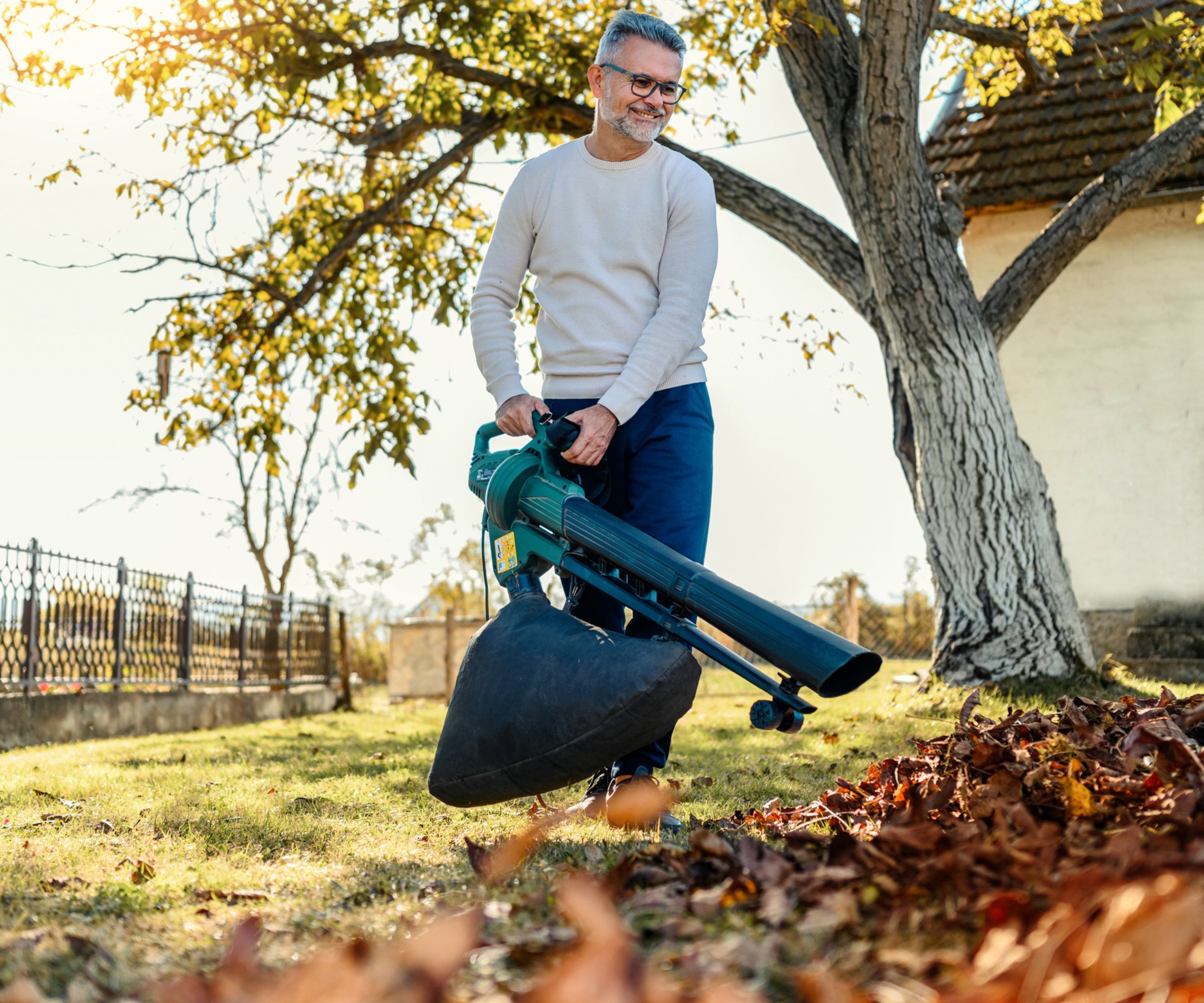
Leaf vacuums are designed to overcome the big problem of leaf blowers. Once you've blown all the leaves into piles, you still need to process them by picking them up and mulching, composting, or worst of all, throwing them into plastic bags as refuse. A leaf vacuum does this for you, sucking the leaves off your patio or lawn and into a bag.
The best models also mulch the leaves for you, turning waste leaves into nutrient-rich mulch you can reuse on your lawn or in your flowerbeds.
Leaf vacuums are also cost-efficient and good for storage. Almost every leaf vacuum on the market also has a leaf blower mode, so you get two tools for the price - and storage space - of one.
What are the drawbacks of a leaf vacuum?
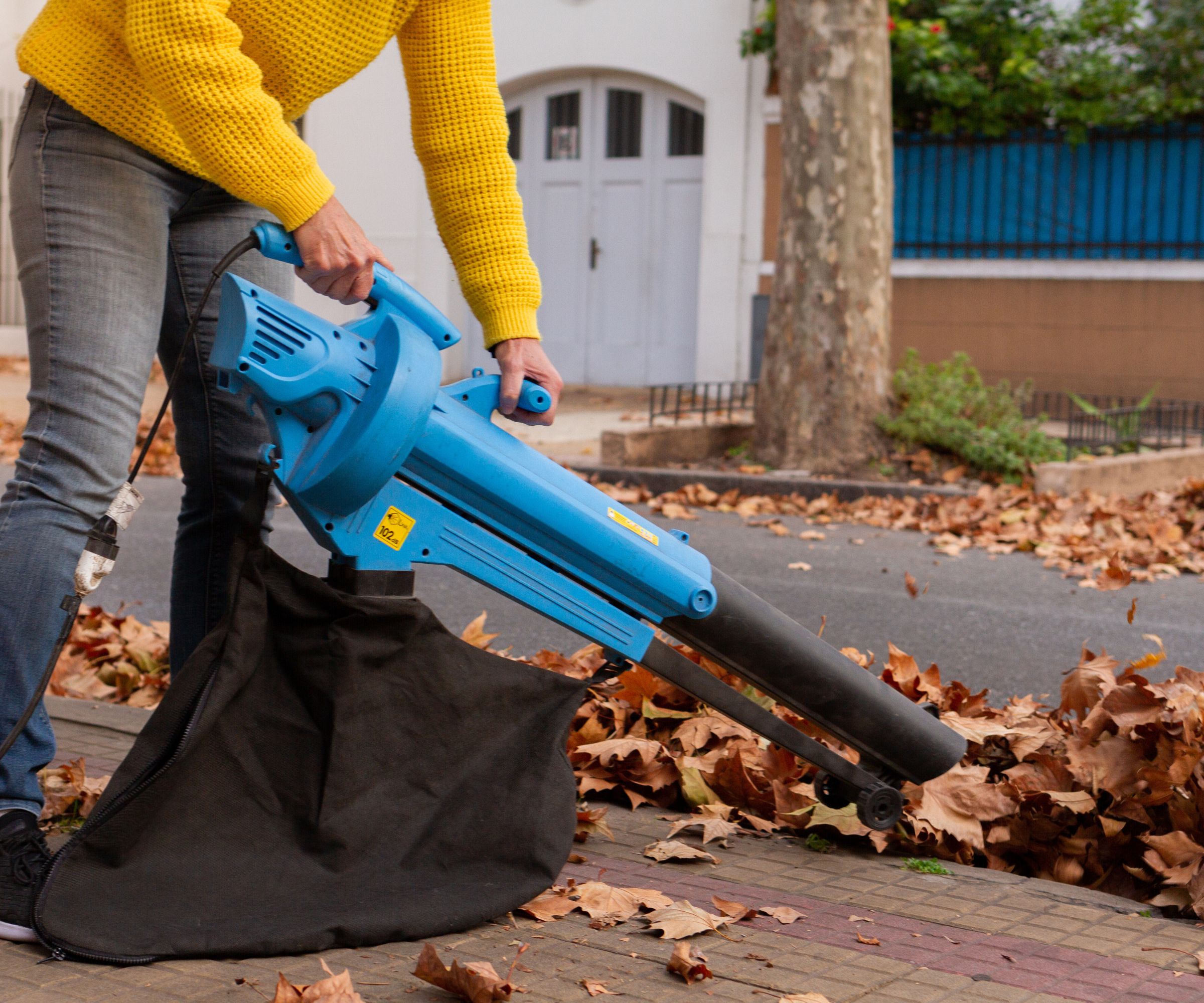
Leaf vacuums are great, but they aren't perfect. The first issue is that they're very finicky and dirty. Many of the leaf vacuums I've tested have a complicated system for switching out the bag and the jet nozzle, and this process has always involved my getting leaf mulch all over my hands and clothes. It's not a huge issue, but it can be a little frustrating.
The second is that many leaf vacuums use a very wide nozzle, which often makes their blower mode relatively ineffective.
On top of that, leaf vacuums have a tiny capacity. When I've used them on my yard I've found that the bag fills up with mulch in just a few minutes, which then needs to be emptied, which makes it a much longer task than it needs to be.
Like leaf blowers, they do not work on wet leaves, but they're especially poor on wet leaves. Unlike the most powerful leaf blowers, leaf vacuums rarely work on grass.
Do you really need a leaf blower or vacuum?
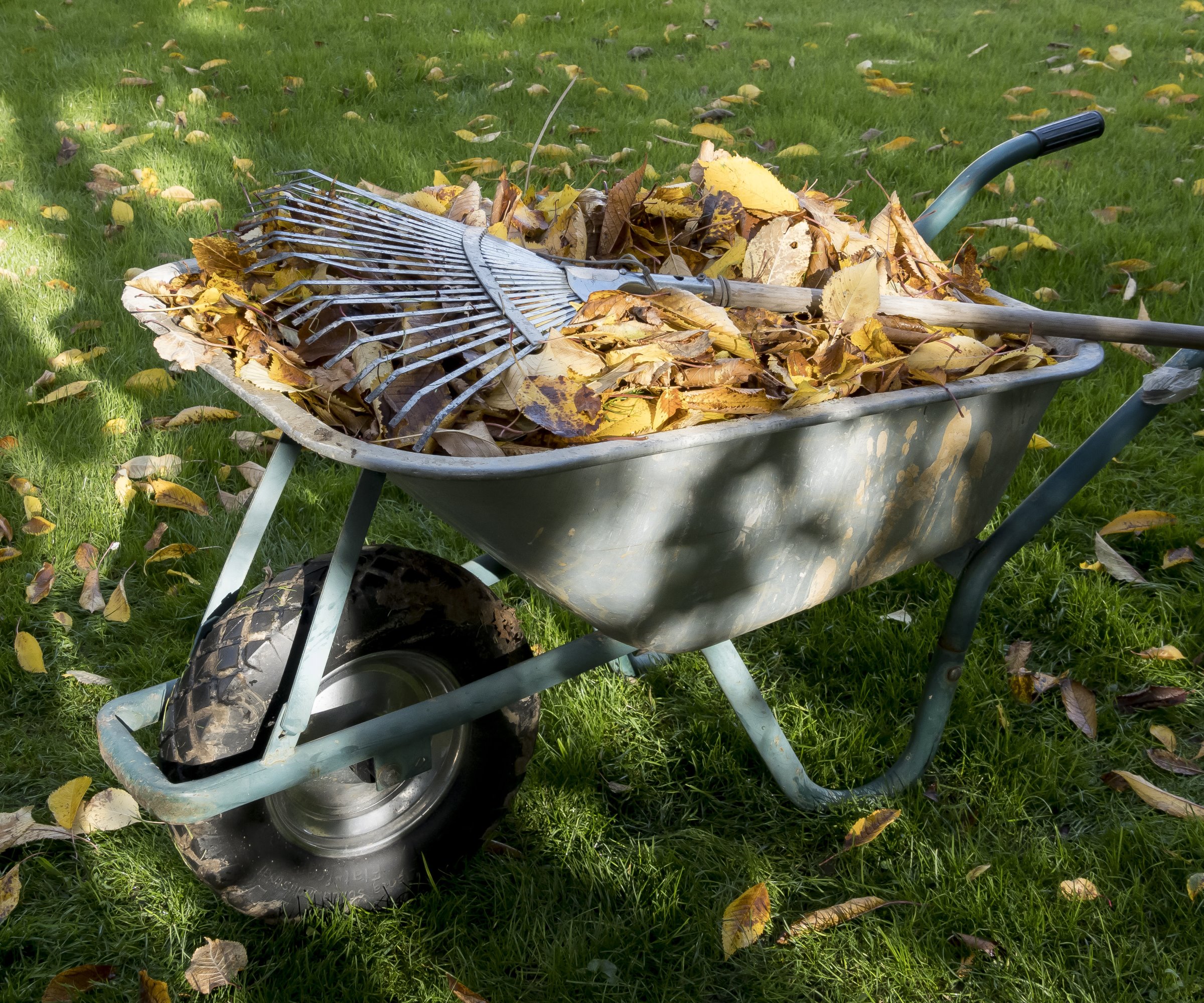
After testing dozens of these, my controversial take is that you don't need either of these products. As far as I can tell from my testing, there are only two use cases. The first is that you have a huge lot and raking or sweeping all your leaves would be impossible. However, for most yards, this isn't the case. The second is if you have a mobility issue that would limit your ability to do hard yard work. A leaf blower would make this sort of tidying up so much easier.
Sweeping or raking is by far the better option. It's one of my favorite yard chores in the fall and winter. You have closer control over the tidying, it's great exercise, doesn't make irritating noise, and it's inexpensive. Every time I've used a leaf blower or leaf vacuum I've spotted little twigs and leaf fragments that I'll need to sweep up anyway, and wondered why I'm bothering with the leaf blower. Sure, you have to pick up all the leaves after, but you have to do that with a leaf blower anyway, so it's not extra work.
Cheap leaf blowers don't always work on grass, and they don't work on wet leaves. In the back half of fall and into winter, leaves are almost always wet from morning dew and rain, so it's pointless to use a blower or vacuum on your lawn. You're much better off raking up the leaves.
Leaf blowers can be used to clean up trimmings after you prune hedges, but while they can blow leaves off your patio, they aren't strong enough to blow thicker branches, which you'll have to sweep anyway.
The only other use case is to use a leaf blower to blast leaves out of borders or pots to make them look tidier. However, this is bad for your plants. Expert gardener Thom Rutter told me that 'I would always leave leaves on borders, pots, as it's a natural mulch that is good for the soil'. This means that you might as well leave them where they are.
If you don't like sweeping and raking, sure, a leaf blower might be a little faster, but I don't think it's as thorough. Ultimately, I don't see the point unless you have a huge yard.
Buy a leaf blower if...
- You hate sweeping and raking
- You have limited mobility
- You want to get rid of leaves fast
Buy a leaf vacuum if...
- You want to turn leaves into mulch
- You want to save money and storage
- You don't mind an imperfect job
FAQ
Are leaf blowers banned in California?
Gas leaf blowers are banned in California. It's not the that the leaf blower is banned, but new small gas engines are now banned in California, so you need to buy a cordless or corded model.
While leaf blowers aren't quite essential gardening tools, they need one of the most valuable items in any gardener's shed - gardening bags. It's a great time to grab hard-wearing garden waste bags before fall sets in and prices go up.

As a gardens and lifestyle contributor, Alex makes sure readers find the right information to help them make the best purchase. Alex got his start in reviewing at the iconic Good Housekeeping Institute, testing a wide range of household products and appliances. He then moved to BBC Gardeners’ World Magazine, assessing gardening tools, machinery, and wildlife products.
